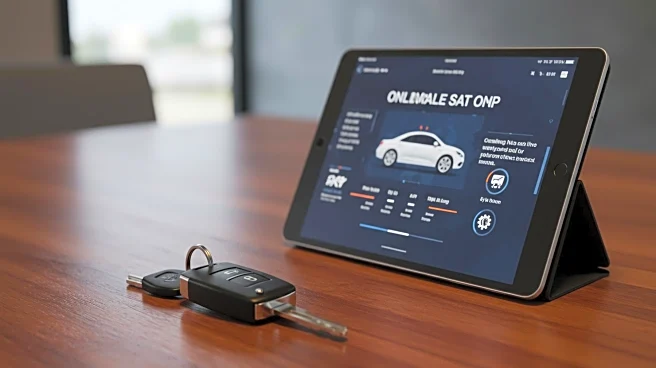What's Happening?
Hertz Global Holdings has announced a partnership with Amazon's automotive retail platform, Amazon Autos, to sell pre-owned vehicles online. This collaboration aims to leverage Amazon's extensive online reach to enhance Hertz's car sales unit. Initially, the service will be available within a 75-mile radius of major cities including Dallas, Houston, Los Angeles, and Seattle. The plan is to eventually expand this service to all 45 Hertz Car Sales locations across the United States. This move is part of Hertz's strategy to capitalize on the growing trend of online car sales, which has been accelerated by the increasing consumer preference for digital shopping experiences.
Why It's Important?
The partnership between Hertz and Amazon Autos signifies a significant shift in the automotive retail landscape, highlighting the growing importance of e-commerce in the used car market. By collaborating with Amazon, Hertz can tap into a vast customer base and utilize Amazon's advanced digital infrastructure to streamline the car buying process. This could potentially increase sales volume and improve customer satisfaction by offering a more convenient and accessible purchasing experience. For Amazon, this partnership expands its footprint in the automotive sector, potentially setting a precedent for future collaborations with other car rental and sales companies. The move could also influence other traditional car retailers to enhance their online presence to remain competitive.
What's Next?
As the partnership rolls out, both companies are likely to monitor consumer response and sales performance closely. If successful, this model could be expanded to include more locations and possibly additional services, such as financing options or extended warranties. Other car rental companies may also consider similar partnerships to boost their online sales capabilities. Additionally, the collaboration could lead to further innovations in how used cars are marketed and sold online, potentially integrating more advanced technologies like virtual reality showrooms or AI-driven customer service.








